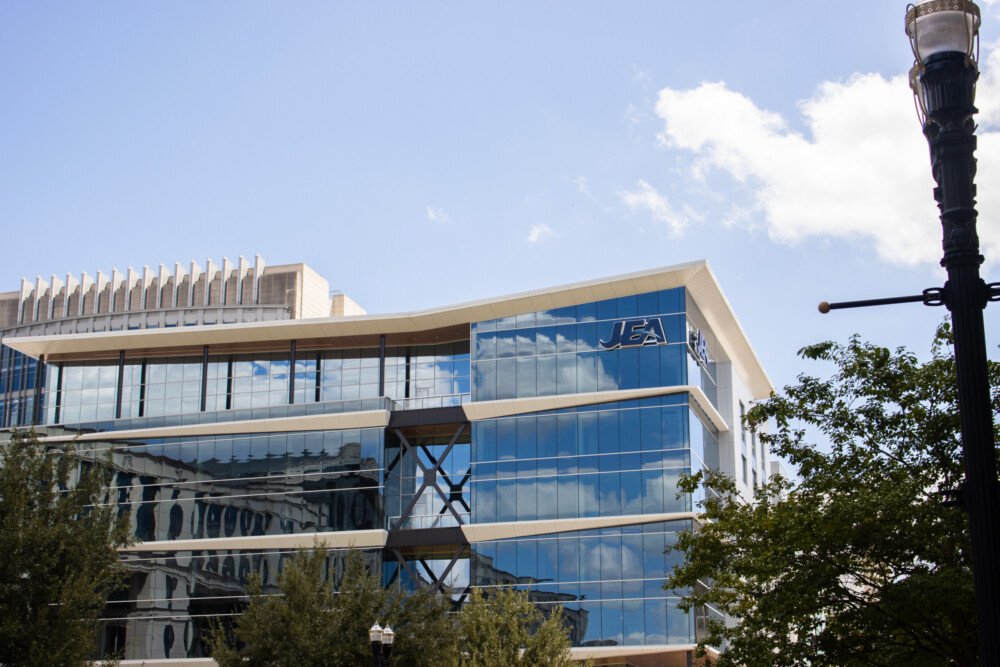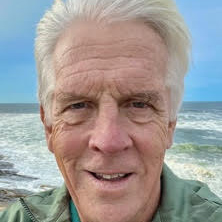JEA’s board on Tuesday approved a set of 2030 goals that will guide a long-range move toward generating more electricity with solar power and other clean energy sources — and the utility is inviting the public to participate in its ongoing conversations on how to achieve the goals.
The plan adopted by the JEA board, known as the electric integrated resource plan includes:
- An increase in the percentage of electricity produced by cleaner energy from the current 4% to 35% by 2030. This would largely be accomplished by adding solar and nuclear power. The result would be an 80% reduction in carbon dioxide emissions compared to 2005 levels. Carbon dioxide is the most common greenhouse gas produced by burning fossil fuels such as coal and natural gas.
- Retiring less efficient generation.
- 100% clean energy to power JEA facilities
- Increased energy efficiency programs to offset growing electrification demands.
The plans also call for construction of a power plant fired by natural gas. That could be as the current Northside Generating Plant is mothballed, although that plant was not specifically cited.
“It is a substantial lift to accomplish this and to create the plans to go forward,” JEA CEO Jay Stowe told the board just before its vote of approval.
Logan Cross, chair of the Sierra Club of Northeast Florida, disagreed.
He told the board during public comments that the plan “puts JEA on the path to become a dinosaur in the electrical power generation industry” because of its continued heavy dependence on burning fossil fuels – coal and natural gas – to generate electricity.
Cross, who leads a local campaign to urge JEA adopt a more aggressive goal of eliminating carbon emissions by 2050, told the board that construction of a new natural gas-fired plant is a mistake because it continues a reliance on fossil fuels at a time when the utility should be moving toward clean, renewable sources of electric power that eliminate the emission of greenhouse gases that are fueling climate change.
Six students from the University of North Florida also told the board that the utility needs to move faster toward renewable energy, with several saying that would attract more technology companies to the city along with their younger, environmentally conscious workers.
Until very recently, Stowe said the share of clean energy in the mix had been just 2% until JEA signed an agreement with Florida Power and Light to receive solar power electricity from that utility, bringing it up to the current 4%.
JEA’s past
Stowe blamed decisions by prior JEA leadership for putting the utility behind the industry curve in its shift to clean energy.
JEA was thrown into disarray with the hiring and early-2020 firing of former CEO Aaron Zahn, who now faces federal criminal charges for an alleged scheme to sell the city-owned utility and pocket millions of dollars in bonuses, along with the former CFO Ryan Wannemacher.
The current JEA board of directors replaced the board that was in place during Zahn’s tenure, and JEA’s staff leadership from the Zahn era was dismissed.
Two missteps that have hurt JEA’s moves toward renewable energy include a prior decision not to build solar power generation at sites that had been purchased in 2017 for that purpose, and the multifaceted setbacks and cost overruns that have plagued a nuclear power plant expansion in Georgia that JEA invested in.
That nuclear plant expansion, called Plant Vogtle Unit 3, should finally begin producing electricity for JEA as soon as June, the board was told. The electricity from Vogtle will be clean but it won’t be cheap; in fact, JEA customers will have to pay an unspecified higher rate for that power because of numerous cost overruns suffered during the often delayed nuclear plant expansion.
Future challenges
With the 2030 goals now set, Stowe says JEA will have to expand its discussion to include the necessary electric-transmission upgrades and power-storage issues that will come with an expansion of solar power into the electric grid.
Also, the demand for electric power, including from the expected increased adoption of electric vehicles, could lead to a demand spike of up to 50% by 2050, an industry expert told the board.
Whatever JEA does with its energy mix, board member John Baker said it needs to send the public message that it cares about the environment.
Beyond providing “reliable, safe and cheap electricity” to Jacksonville, he said, “We’ve also got to have an eye on the environment in a very, very serious way, and to not say that is almost to deny it.”
Next steps
As the final “formal stakeholder meeting” in its integrated resource plan process, JEA and ADAPT (part of Jacksonville Today ) will co-host a public forum on May 25th. “Your YOUtility, Your Future Energy Mix” will include discussions with JEA CEO Jay Stowe and four stakeholders who participated in developing the utility’s long-range plan: Charles Moreland, Lisa Rinaman, Melanie Patz, and Sam Dean. Register to attend here.
The board also agreed to two more reviews before 2030, noting that quickly evolving technologies will need to be reviewed and considered in a much faster timeframe than previously done.








